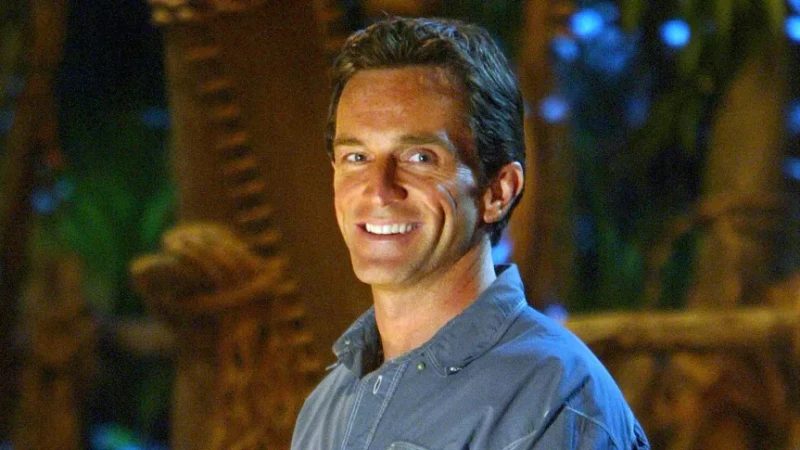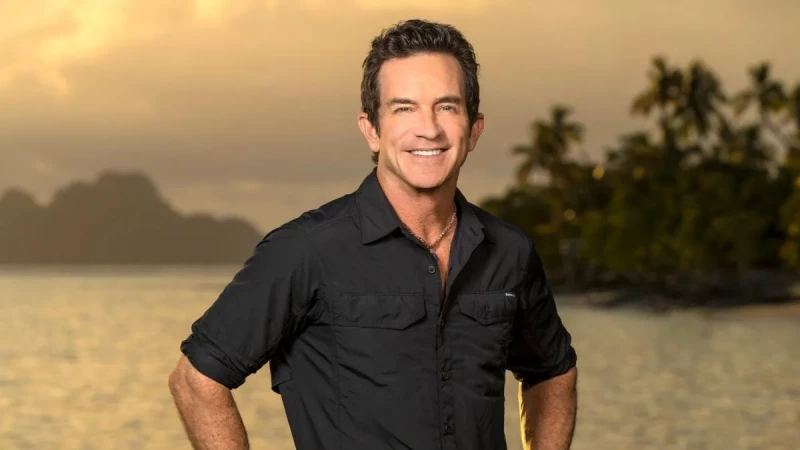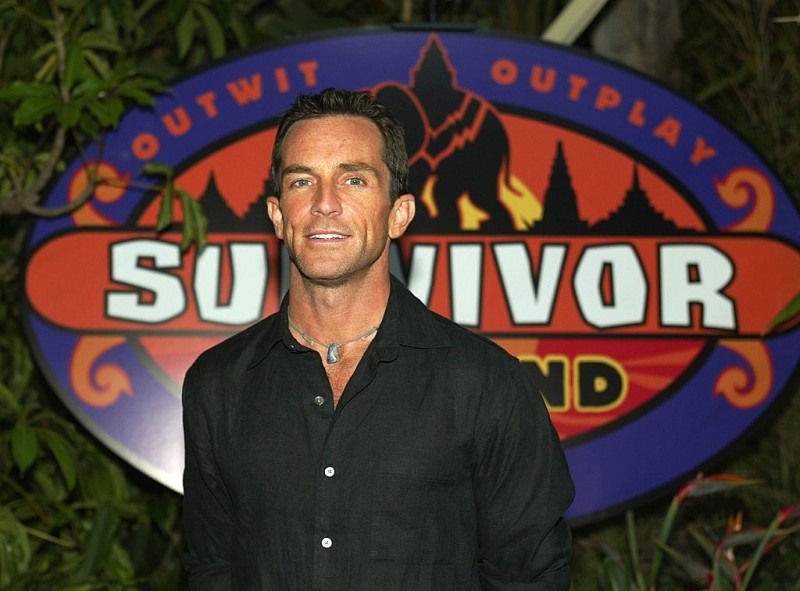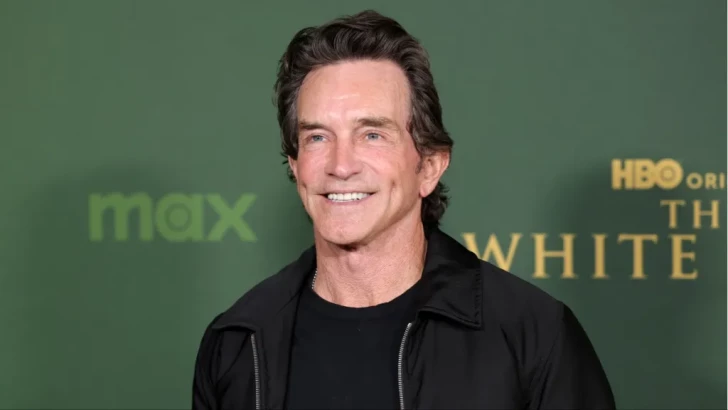Jeff Probst stands as one of the most recognizable faces in reality television, but his path to a $50 million fortune wasn't an overnight success story. The Survivor host's journey from producing corporate training videos to commanding one of the highest salaries in reality TV demonstrates how persistence and strategic career moves can transform financial prospects.
How Jeff Probst Earned His First Money

Probst's entry into the professional world was humble. While still in high school in Wichita, Kansas, he worked busing tables at Elks Lodge for just $2.20 an hour. This early work experience taught him the value of earning his own money and building a strong work ethic from the ground up.
After graduating from Newport High School in 1979, Probst enrolled at Seattle Pacific University but left before completing his degree to chase his television dreams. His father Jerry helped him land his first real job in the entertainment industry at Boeing Motion Picture/Television studio, where he started as a production assistant making marketing and training videos.
First Job at Boeing Launched Television Career

At Boeing's motion picture department, Probst worked his way up from production assistant to writer, producer, and eventually narrator of marketing and training videos for the aerospace giant. This role, while far from glamorous, gave him invaluable experience in storytelling and presentation skills. One vintage video that recently popped up online shows a young Probst instructing viewers on car battery maintenance for a local Seattle automotive company.
Working at Boeing paid the bills, but it wasn't Probst's passion. During this time, he received regular paychecks every two weeks but dreamed of bigger opportunities in television. The experience taught him technical production skills and how to communicate effectively on camera, laying the foundation for his future hosting career.
Career Development and Early Earnings

Probst's breakthrough came when he auditioned for FX Network in the mid-1990s. His first hosting gig was Backchat, a late-night show designed as a viewer feedback segment about the network. The show was pretty unusual since FX was so new that hardly anyone was watching, which meant almost nobody was writing in. Despite the weird premise, this job represented a major step forward in Probst's career.
Following his FX stint, Probst became a correspondent for Access Hollywood in 1996, traveling over 300,000 miles around the world and gaining valuable on-camera experience. He then landed the hosting position for VH1's Rock & Roll Jeopardy from 1998 to 2001. While these roles significantly improved his earnings compared to his Boeing days, he was still far from wealthy.
During this period, Probst turned down nine consecutive job offers over 18 months, including lucrative positions on dating shows. He wasn't interested in being just another guy reading a teleprompter and introducing couples. Before landing Survivor, Probst had less than $10,000 in his bank account and was worried about making rent. The financial struggle was real, but he refused to take jobs that didn't align with his vision.
When Probst Reached His Peak

Everything changed in 2000 when Probst heard Mark Burnett discussing Survivor on the radio while driving down the freeway in Los Angeles. Convinced this was his opportunity, he aggressively pursued the hosting role. After his audition, worried that he hadn't secured the position, Probst did something pretty bold. He wrote fake news articles predicting Survivor's success, ending each with the line about how experts credited much of the show's success to the very likable but unknown Jeff Probst. He sent these articles in a bottle to CBS executives.
The bold move worked. Four months later, he got the call that would change his life. When Survivor premiered in summer 2000, it became a cultural phenomenon, and Probst's catchphrase "The tribe has spoken" entered the American lexicon. The show's massive success catapulted him from financial uncertainty to television stardom practically overnight.
By the mid-2000s, Probst was earning approximately $4 million per season. As Survivor continued its dominance, his salary increased substantially. He became not just the host but also an executive producer starting in Season 13, giving him backend points on the show's revenue. His peak earnings period began around this time and continues today.
Current Jeff Probst Net Worth and Earnings

As of 2025, jeff probst net worth stands at an estimated $50 million. His primary income source remains Survivor, where he reportedly earns $8 million annually. With Survivor producing two seasons per year, this works out to approximately $500,000 per episode based on the typical season format.
Some sources suggest his per-season earnings might be even higher, potentially reaching $8 million per season, which would put his annual income closer to $16 million. Regardless of which figure is accurate, Probst ranks among the highest-paid reality television hosts in the industry.
Beyond Survivor, Probst's jeff probst net worth benefits from several income streams. He wrote and directed the 2001 film Finder's Fee starring Ryan Reynolds, which won awards at multiple film festivals. He also directed Kiss Me in 2014 and authored the Stranded children's book series with Christopher Tebbetts. While these projects don't match his Survivor earnings, they contribute to his overall wealth.
In 2011, Probst purchased legendary entertainer Gene Autry's former 8,000-square-foot Studio City estate for $5 million. The property sits on nearly four acres and includes five bedrooms, seven bathrooms, a library, media room, swimming pool, and guesthouse. This real estate investment represents a significant chunk of his assets.
Probst attempted to expand his television presence with The Jeff Probst Show, a daytime talk show that aired from September 2012 to May 2013. Unfortunately, low ratings led to its cancellation after just one season. Despite this setback, his financial foundation remained rock solid thanks to his Survivor income.
Currently in its 48th season with more confirmed through at least Season 52, Survivor shows no signs of ending. As long as the show continues, Probst's financial future looks exceptionally secure. His four Primetime Emmy Awards for Outstanding Host between 2008 and 2011 have also enhanced his marketability and negotiating power.
Jeff Probst's Key Principles for Success

Throughout his career, Probst has shared valuable insights about achieving success that go beyond just accumulating wealth. His philosophy centers on several core principles that guided him from financial struggle to multi-millionaire status.
- Follow Your Effort, Not Your Dream. Probst tells people to pay attention to where they actually put their effort rather than just chasing what they think they want. He believes your true passion reveals itself through where you naturally invest your time and energy.
- You Are the Measure of Your Success. Influenced by author Joseph Campbell's philosophy to follow your bliss, Probst emphasizes that external markers like job titles, money, or awards aren't the true measure of success. Only you can truly determine if you're successful. Personal growth and becoming a better person matter more than material achievements.
- Being Nice and Genuine Goes a Long Way. According to Probst, likability and reading people effectively can take you far in any field. If that's the only skill you have, you'll still do okay. Authentic kindness creates positive relationships that open doors throughout your career.
- Do Your Homework and Give Your Best Effort. Probst believes success means doing your homework, putting in the time, concentrating and getting your priorities straight. On Survivor, he's noticed that contestants who show up unprepared demonstrate they don't care enough to succeed. The same principle applies in professional life where preparation separates those who advance from those who get voted off.
- Maintain Humility Over Arrogance. Probst has watched many Survivor contestants gain power and become arrogant, which turns people against them. He emphasizes maintaining self-confidence without crossing into arrogance. This balance remains crucial whether you're interviewing for jobs or succeeding in your current role.
- Take Calculated Risks. Probst walked away from good money and turned down nine job offers when they didn't align with his goals. He wasn't going backwards if he couldn't get what he wanted. His willingness to risk short-term security for long-term fulfillment ultimately paid off with Survivor.
- Perception Is Reality. From hosting Survivor, Probst learned that how people perceive you matters as much as who you actually are. Managing your professional image and being mindful of how others view your actions can significantly impact career advancement.
- Stay True to Your Values. Despite pressures to take corporate jobs or easier opportunities, Probst remained committed to his vision of being a storyteller with creative control. This authenticity eventually led him to his ideal role where he could be the last voice in authoring the story.
- The story of jeff probst net worth is more than just numbers. It represents a journey from busing tables for $2.20 an hour to earning $8 million annually, from having less than $10,000 in the bank to owning a $50 million fortune. Probst's success didn't come from luck but from strategic decision-making, unwavering persistence, and refusing to compromise on his vision even during financially difficult times.
His career proves that financial success often requires patience, saying no to wrong opportunities, and maintaining faith that the right opportunity will eventually arrive. For Probst, that opportunity was Survivor, and it transformed not just his bank account but his entire life.
 Eseandre Mordi
Eseandre Mordi

 Eseandre Mordi
Eseandre Mordi


